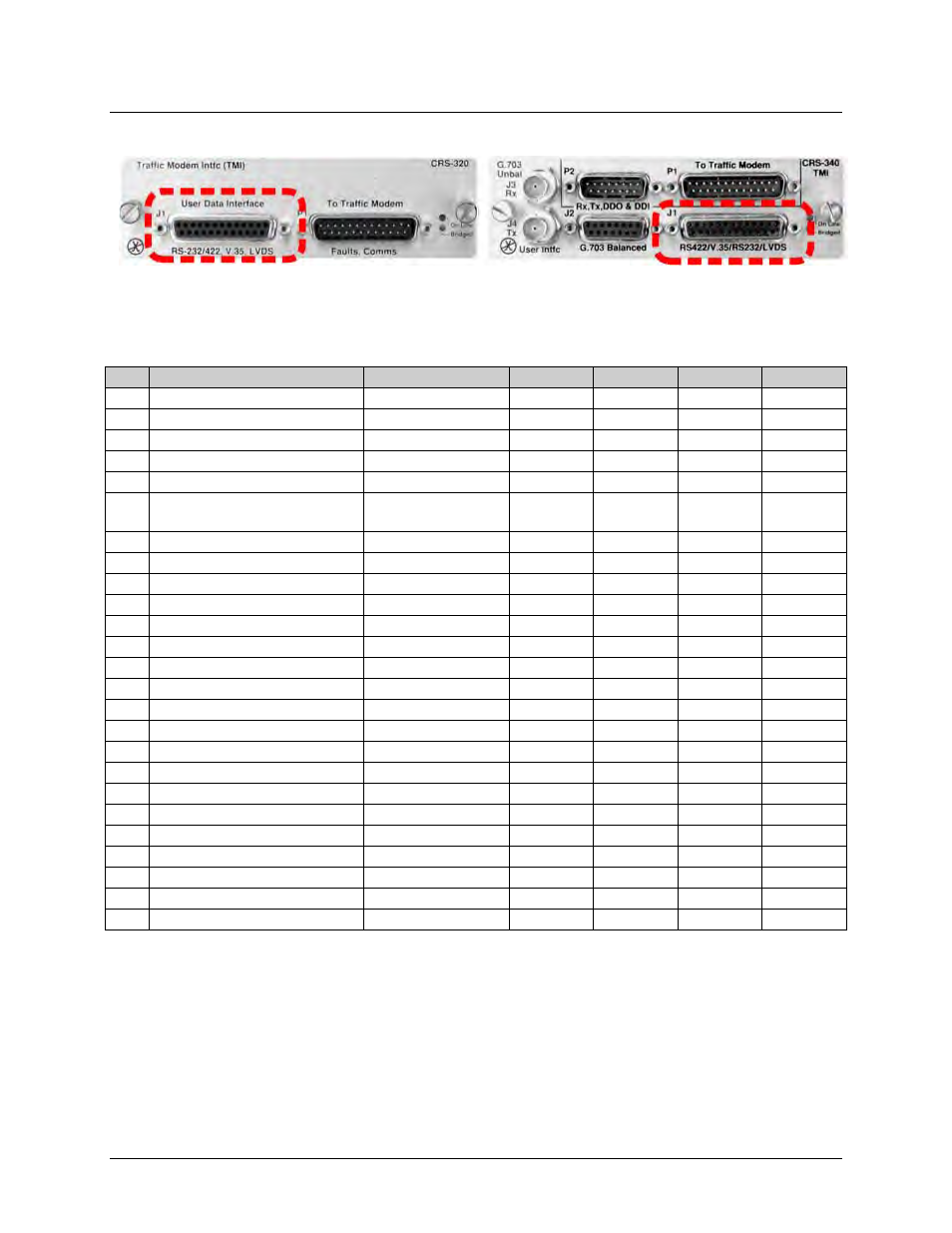Comtech EF Data CRS-300 User Manual
Page 62

CRS-300 1:10 Redundancy Switch
MN/CRS300.IOM
Switch Connectors and Pinouts
Revision 19
3–8
3.2.2.2 EIA-232/422/V.35/LVDS Connector, DB-25F (CRS-320/340)
Table 3-5 indicates the pinout for the DB-25F EIA-232/422/V.35/LVDS User Data Interface
connector – “J1” on the CRS-320 TMI (obsolete), and “J2” on the CRS-340 TMI.
Table 3-5. EIA-232/422/V.35/LVDS Connector
Pin Generic Signal Function
Direction
Circuit No.
EIA-232
EIA-422/530
V.35
13 Note 2
25
Note 2
12 Internal Transmit Clock ‘B’
Modem to DTE
114
---
ST B
SCT B
24
Transmit Clock ‘A’
DTE to Modem
113
DA
TT A
SCTE A
11 Transmit Clock ‘B’
DTE to Modem
113
---
TT B
SCTE B
23
External Carrier Off
(EIA-232 ‘1' or TTL ‘low’)
DTE to Modem
---
---
---
---
10 Receiver Ready ‘B’
Modem to DTE
109
---
RR
B
22
Note 2
9 Receive Clock ‘B’
Modem to DTE
115
---
RT B
SCR B
21
Note 2
8 Receiver Ready ‘A’
Modem to DTE
109
CF
RR A
RLSD *
20
Note 2
7 Signal Ground
---
102
AB
SG
SG
19
Note 2
6 Note 2
18
Note 2
5 Note 2
17
Receive Clock ‘A’
Modem to DTE
115
DD
RT A
SCR A
4 Note 2
16
Receive Data ‘B’
Modem to DTE
104
---
RD B
RD B
3 Receive Data ‘A’
Modem to DTE
104
BB
RD A
RD A
15
Internal Transmit Clock ‘A’
Modem to DTE
114
DB
ST A
SCT A
2 Transmit Data ‘A’
DTE to Modem
103
BA
SD A
SD A
14
Transmit Data ‘B’
DTE to Modem
103
---
SD B
SD B
1 Shield
---
101
AA
Shield
FG
Notes:
1) “Receiver Ready” is an EIA-232-level control signal on a V.35 interface.
2) Do NOT connect signals to these pins – they are reserved for use by the redundancy system.
3) 'B' signal lines are not used for EIA-232 applications.
4) For X.21 operation, use the EIA-422 pins, but ignore Receive Clock if the modem is DTE, and ignore Transmit clocks if the modem is DCE.